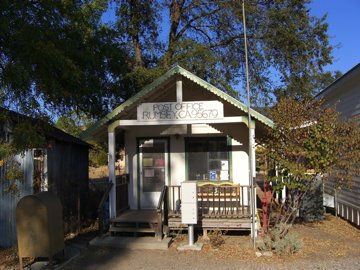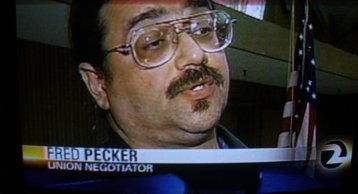Let’s just say you walked out to your car, the way you do every day if you have a car, and you looked in and saw the stereo was gone. Neatly and completely removed.
It happens. No sense getting too worked up. Nobody’s hurt, after all.
But what if it’s the third time it’s happened in this particular car, parked in the middle of your safe, seemingly immune little middle-class neighborhood (and when the stereo isn’t being ripped off, the car’s roof and hood are being kicked in or the windshield smashed)?
Then maybe you start thinking about all the other things that have happened on your safe, seemingly immune street since you moved in back in the late ’80s. You recall in no particular order:
The rapist who was caught after casing the house across the street.
The two laptops someone scooped up from your desk after smashing your kitchen window while you were out at the ballgame.
The innumerable late-evening front-door encounters with victims of empty gas tanks, freeway wrecks or other fictional misfortunes who just needed five or ten bucks to help them deal with the emergency.
The random misfortunate who snatched a purse from a neighbor’s house as the neighbor tried to verify the poor guy’s sketchy story.
The guy who showed up at 1 a.m., pounding on the door and demanding money from your wife while you were working.
The two or three or four other cars broken into in front of your house.
The neighbors who one day couldn’t find their car because it had been stolen overnight.
The stolen car that was dumped on the street, right in front of you, in broad daylight.
The break-in at the across-the-street neighbor’s place.
The break-in at the neighbor’s place three doors up.
The several occasions on which would-be burglars were interrupted while casing targets.
The bikes stolen from the back of your house and from behind one of your neighbors’ homes.
The commuter robbed at gunpoint up the street as he returned for his car after work.
The dad out walking with his kids who had a gun pulled on him during an attempted robbery.
The neighbor whose back-porch Sunday breakfast was interrupted by a guy coming over the fence with a suitcase. The neighbor asked what was going on, and the over-the-fence guy just said, “Stay out of my way” and kept on going.
One way I can look at all this: Hey, no one died. You can replace property, fix windows, buy a new car stereo, and get over your fear and sense of violation. But the way I looked at it when I discovered the stereo gone was not so reasoned and cool. It feels like this place asks a lot sometimes for the privilege of living here, and sometimes I detest the cost.
I’ve got no answers, or apologies, either. Just chewing it over.
Technorati Tags: berkeley

 Two questions, actually: What’s the origin of the Chicago Bears’ nickname, “The Monsters of the Midway,” and how did it come to be applied to the Bears?
Two questions, actually: What’s the origin of the Chicago Bears’ nickname, “The Monsters of the Midway,” and how did it come to be applied to the Bears?



